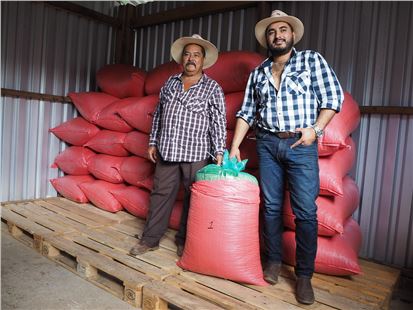THE BENNETTS MONTHLY OCTOBER '21

All things Bennetts and Coffee...
| Happy Coffee New Year!
COLOMBIA UPDATE Much like Australia, the Colombian national vaccination program has been delayed as a result of late arrival of vaccines from the different manufacturers to the Country. 51% of the population has received at least one dose of vaccine and 33% are fully vaccinated. New Covid-19 cases in Colombia have dropped significantly in recent months to 1600 daily reported infections on average in the past week and 40 daily deaths. While some larger companies continue to promote working from home, most of the country has gone back to face to face commerce, as well as most schools. As you might recall from earlier this year, there was a failed attempt from the Government to pass a tax reform that ended in the resignation of the Finance Minister. While the new Finance Minister has since been successful in, in passing a $15 billion COP (U$3.9 billion) tax bill through Congress. This dollar figure shows you how small Colombia's economy is. As mentioned previously, the structural problem in Colombia is that only less than 5% of the country’s labour force files income tax, which means that 20% of the total income tax collection comes from individuals and 80% is corporate! A sharp contrast with other OECD member countries. Within the coffee sector, individual coffee producers do not file income tax. At times of price booms, such as the current climate, where coffee growers’ incomes are high, it makes sense for the Government to attempt to expand the taxpayer base. Besides this macroeconomic point, overall security in main cities has continued to deteriorate with daily street crime cases dramatically increasing. The early stages of next year’s presidential election continues to heat up now with over 40 precandidates, a phenomenon not seen in previous elections. This means that through February – March 2022, we’ll see this crowded group narrow down to the left, centre and right favourites. We’ll keep you updated with further news on the Colombia situation though the year. |





